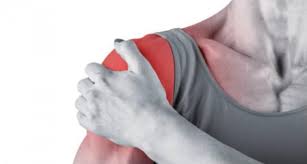
By Kure Clinic
A rotator cuff injury refers to damage or tearing of one or more of the muscles and tendons that make up the rotator cuff, which is a group of muscles and tendons that attach the shoulder blade to the upper arm bone. The rotator cuff muscles and tendons help to stabilize and move the shoulder joint.
Rotator cuff injuries can result from repetitive overhead arm movements, such as those performed in sports like tennis and baseball, or from a sudden injury, such as a fall or a heavy lifting. Symptoms of a rotator cuff injury may include pain, weakness, and limited range of motion in the shoulder.
Treatment options for a rotator cuff injury depend on the severity of the injury, but may include rest, ice, physical therapy, and in some cases, surgery. It is important to seek medical attention if you suspect you have a rotator cuff injury, as early intervention can help prevent further damage and improve outcomes.
Physiotherapy treatment in rotator cuff injury
Physical therapy is often an important part of the treatment plan for a rotator cuff injury. The goals of physical therapy are to relieve pain, improve strength and flexibility, and restore normal shoulder function.
Here are some common physical therapy treatments for rotator cuff injuries:
Physical therapy for rotator cuff injuries is typically tailored to each patient’s individual needs and may be adjusted as their condition improves. It is important to work closely with a licensed physical therapist to ensure proper treatment and to avoid further injury.
Chiropractic treatment in rotator cuff injury
Chiropractic treatment for rotator cuff injuries may involve a combination of manual therapies, such as adjustments and soft tissue mobilization, as well as exercises and stretches.
Chiropractors may perform gentle adjustments or manipulations to the shoulder joint to help improve its range of motion and decrease pain. Soft tissue mobilization techniques such as myofascial release, trigger point therapy, and instrument-assisted soft tissue mobilization (IASTM) may also be used to help reduce muscle tension and improve flexibility.
In addition, chiropractors may prescribe exercises and stretches to help strengthen the rotator cuff muscles and improve shoulder stability. These exercises may be performed both in the office and at home, and may include resistance band exercises, wall slides, and scapular strengthening exercises.
It is important to note that chiropractic treatment for rotator cuff injuries may not be appropriate for all patients, especially those with severe injuries or other underlying medical conditions. It is important to consult with a healthcare professional to determine the most appropriate treatment plan for your individual needs.
Orthopedic treatment in rotator cuff injury
Orthopedic treatment for rotator cuff injuries may involve a variety of options depending on the severity of the injury. These may include:
For all your bone and joints related problems you can contact our consultatnt orthopedic surgeon and get your problems resolved. https://kure.co.in/orthopaedics-in-noida/
Book an appointment with the best chiropractor in noida to live a pain-free life again. https://kure.co.in/chiro-chiropractor-chiropractor/
Are you sick of being in Pain? Our amazing team will get you moving PAIN FREE ! BOOK PHYSIOTHERAPY APPOINTMENT NOW https://kure.co.in/physiotherapy/
Are you sick of being in Pain? Our amazing team will get you moving PAIN FREE ! BOOK PHYSIOTHERAPY APPOINTMENT NOW https://kure.co.in/physiotherapy/
Physiotherapy and Chiropractor http://eshankaushik.com/